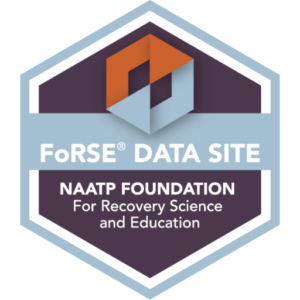Addiction is a powerful force that affects many individuals, taking a toll on physical, emotional, and mental health. Overcoming addiction requires more than just willpower—it demands a structured, supportive approach. One of the first crucial steps in this journey is detoxification. Medical detox in Birmingham, AL, offers individuals the safe, supervised environment they need to rid their bodies of addictive substances and begin the recovery process. This program is specifically designed to manage withdrawal symptoms, offering the professional care needed to begin the path to sobriety.
In this article, we will explore the key aspects of medical detox and how it plays a vital role in the addiction recovery process.

At Longleaf Centers in Birmingham, Alabama, our medical detox program offers a holistic approach tailored to each individual’s needs. Our program includes:
- Comprehensive Assessment: Upon admission, clients undergo a thorough evaluation to determine the appropriate level of care and develop a customized treatment plan tailored to their specific needs.
- Medical Supervision: Experienced healthcare professionals monitor clients around the clock, ensuring safety and comfort throughout the detox process.
- Therapeutic Support: Incorporating individual therapy and group sessions to address the psychological aspects of addiction and promote emotional healing.
- Aftercare Planning: Developing a roadmap for continued support and treatment post-detox to facilitate a smooth transition into rehabilitation programs.
By choosing Longleaf Centers, individuals embark on a recovery journey backed by evidence-based practices and compassionate care.
Importance of Medical Detoxification
- Ensures Safe Withdrawal: Medical professionals monitor the patient’s progress, ensuring that withdrawal symptoms are managed safely and effectively.
- Personalized Care: Detox programs are tailored to individual needs, addressing specific health concerns and substance dependencies.
- Prevents Complications: Medically supervised detox helps to prevent life-threatening complications such as seizures or heart issues during withdrawal.
- Provides Support: Patients receive emotional and psychological support, making the process less stressful and more manageable.
- Monitors Vital Signs: Continuous monitoring of vital signs (heart rate, blood pressure, etc.) ensures that the patient remains stable throughout the detox process.
- Access to Medication: Medical staff can administer medications to alleviate withdrawal symptoms and make the detox process more comfortable.
- Reduces Risk of Relapse: A controlled, supervised environment minimizes the chances of relapse during the detox phase.
- Improves Overall Health: Detoxification helps clear toxins from the body, contributing to a healthier physical state that can enhance mental clarity and overall well-being.
- Comprehensive Treatment: Medical detox often involves a multi-disciplinary approach, combining medical, nutritional, and psychological care to support the recovery process.
- Preparation for Long-Term Treatment: Medically supervised detox provides a foundation for continued therapy and rehabilitation, making it an essential first step in addiction treatment.
What are the Common Substances That Require Medical Detox?
Alcohol dependence or addiction may lead to severe withdrawal symptoms, including seizures and delirium tremens (DTs), making medically supervised detox crucial.
Opioids, such as heroin, fentanyl, oxycodone, and morphine, can cause intense withdrawal symptoms like body aches, nausea, and anxiety. Detox is necessary to manage these symptoms safely.
Medications like Valium, Xanax, and Ativan can cause dangerous withdrawal symptoms, such as seizures and extreme anxiety, making detoxification under medical supervision essential.
While cocaine withdrawal symptoms are typically not as physically dangerous as those of alcohol or opioids, they can still cause psychological distress, including depression and cravings, requiring careful management during detox.
Detoxing from methamphetamine can involve severe psychological symptoms like depression, fatigue, and intense cravings, which often require medical supervision to prevent relapse and complications.
Although not typically associated with life-threatening withdrawal symptoms, nicotine addiction can lead to intense cravings, irritability, and anxiety, making detox programs helpful in supporting the process.
These drugs, often prescribed for anxiety or sleep disorders, can lead to dangerous withdrawal symptoms like seizures and respiratory failure, necessitating a medically supervised detox.
These substances can cause extreme psychological effects such as hallucinations, agitation, and paranoia. Detoxing from these substances may require medical support to stabilize the individual.
Insurances We Accept








What to Expect During Medical Detox in Birmingham
During medical detox, individuals will undergo a comprehensive evaluation to assess their physical and mental health. This includes reviewing their medical history, existing conditions, medications, and substance abuse history to determine the best detox approach tailored to their needs. The medical team will work closely with the patient to understand their specific needs and develop a personalized treatment plan.
As detox progresses, individuals will be closely monitored for any withdrawal symptoms, which can vary depending on the substance(s) being eliminated. Medical professionals may prescribe medications to ease withdrawal symptoms, reduce cravings, and prevent complications. Withdrawal symptoms such as nausea, sweating, irritability, anxiety, and tremors are common, but the medical team will ensure that patients are kept comfortable and safe throughout this phase.
Supportive care is essential during detox to facilitate the body’s recovery. Proper hydration and nutrition are crucial, and medical staff will ensure that patients receive the necessary fluids and nutrients to support their detoxification process. In some programs, counseling and therapy sessions are also incorporated to address the psychological aspects of addiction and help individuals cope with emotional challenges during the detox period.
The goal of stabilization is to help individuals regain physical health and prepare their bodies for further treatment. This stage typically lasts from a few days to a week, depending on the severity of substance use. During this time, emotional support is crucial as individuals may experience emotional ups and downs. The medical team will provide constant care to ensure that patients are in a stable physical and emotional condition
Once detox is complete, the medical team will discuss the next steps in the recovery journey, such as inpatient or outpatient rehabilitation, therapy, and aftercare support. Patients will receive education on maintaining sobriety, avoiding relapse triggers, and accessing continued counseling. This discharge planning is designed to provide a foundation for long-term recovery, ensuring that individuals have the necessary resources and support to succeed in their treatment.

Who Needs Medical Detox?
- Severe addiction: Those who need professional help to manage physical dependence on substances.
- Dangerous withdrawal symptoms: Individuals experiencing severe withdrawal symptoms such as seizures.
- Multiple substance dependencies: Detoxification is essential for clearing multiple substances safely.
- Co-occurring health issues: Those with mental health or physical health conditions require extra support during detox.
- High-risk individuals: People with a history of detox failure or relapse need medical supervision to reduce further risks.

How Long Does Medical Detox Last?
- Substance Used: Different substances have varying withdrawal timelines. For example, alcohol and benzodiazepines may require longer detox periods due to more severe withdrawal symptoms.
- Severity of Addiction: Individuals with long-term or severe addictions may experience more intense withdrawal symptoms, extending the detox process.
- Individual Health: A person’s overall physical health, mental health status, and any co-occurring medical conditions can influence how long detox will take.
- Withdrawal Symptoms: Some substances, like opiates or stimulants, may require more time for the body to adjust and stabilize during detox.
- Detox Method: Whether the detox process is inpatient or outpatient can also affect the duration. Inpatient detox generally allows for more monitoring and may shorten the detox period.
Medications Used During the Detox Process
- Benzodiazepines like Diazepam and Lorazepam are used to treat anxiety, agitation, and prevent seizures, especially in alcohol or benzodiazepine detox.
- Opioid Agonists such as Methadone and Buprenorphine help reduce cravings and ease withdrawal symptoms in opioid detox.
- Clonidine helps manage physical withdrawal symptoms like sweating and anxiety during opioid detox.
- Naltrexone is used after detox to block the euphoric effects of opioids and alcohol, helping reduce cravings and prevent relapse.
- Antidepressants like Sertraline and Fluoxetine are used to manage depression and anxiety during detox, especially in alcohol or opioid withdrawal.
- Vitamins and Electrolytes like Thiamine and Folate replenish nutrients lost during substance use, particularly in alcohol detox.
- Antiemetics such as Ondansetron control nausea and vomiting during detox from alcohol or opioids.
- Anti-seizure Medications like Phenytoin and Carbamazepine prevent seizures during alcohol or benzodiazepine detox.
- Antipsychotics such as Olanzapine manage severe agitation or psychosis in cases of severe withdrawal from alcohol or benzodiazepines.
What Happens After Detox? Continuing Care Options
In addition to therapy, continuing care plays a critical role in maintaining recovery. This phase often includes support groups, sober living environments, and detailed aftercare planning to ensure individuals have a strong support network after their initial treatment. Regular check-ins with healthcare providers and addiction specialists offer personalized guidance as individuals navigate life in recovery. Continuing care is vital in strengthening commitment to sobriety, helping individuals adjust to a healthier lifestyle, and ultimately improving their chances for lasting recovery and overall well-being.

Why Choose a Birmingham Facility for Detox?
Choosing a Birmingham facility for detox offers several advantages that can enhance your recovery journey. Here are some reasons why local detox centers are a great choice:
Proximity to Home
Local Expertise
Familiar Environment
Accessibility of Resources
Insurance and Payment Options for Detox Services
In addition to insurance, alternative payment options are often available, including payment plans and financing. Some detox centers may offer sliding-scale fees based on income or provide options for individuals without insurance. Inquire about detox program options to find affordable solutions that meet your financial needs and provide the necessary care.
Start Your Recovery with Medical Detox at Long Leaf Recovery Center in Birmingham Today








